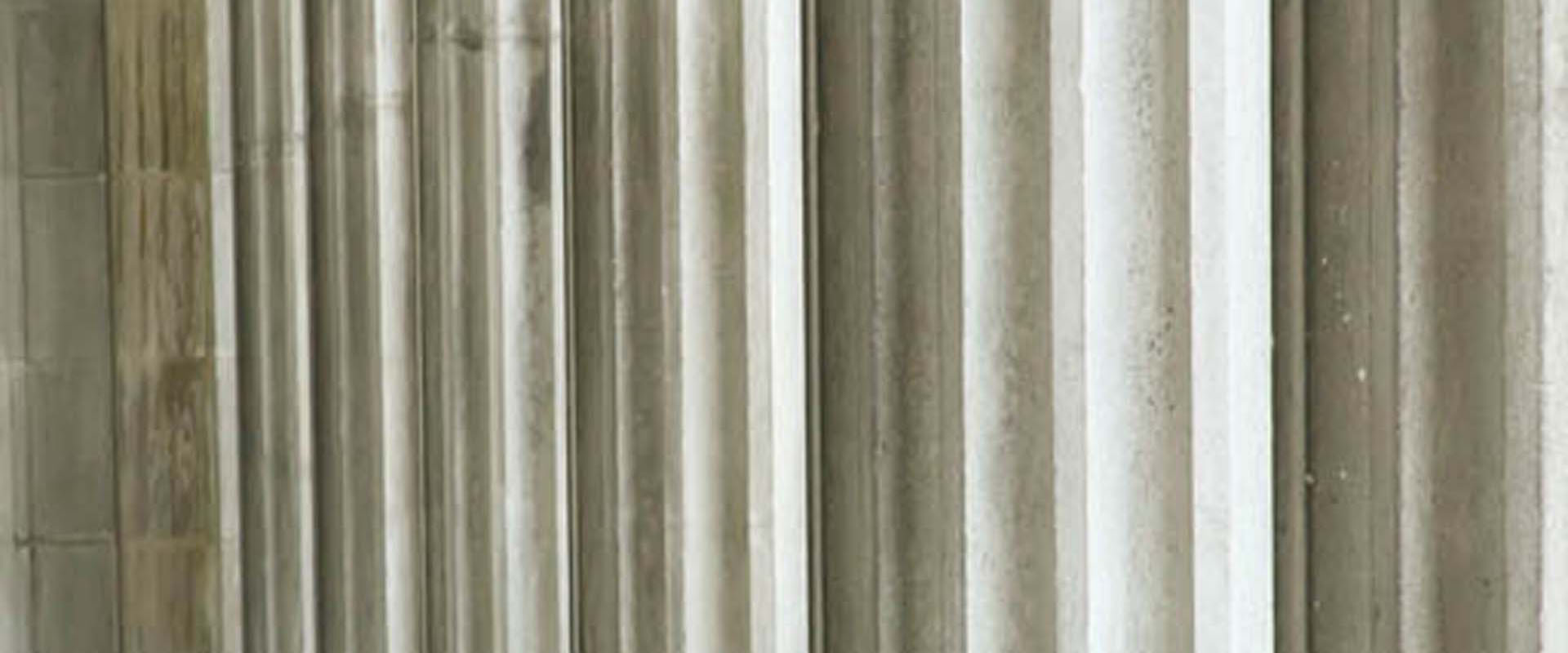Appellate Court Ruling Sheds Light on the Government Claims Act, Sexual Abuse Cover Up and Related Damages

August 2021
Number 21
In its recent decision in Los Angeles Unified School District v. Superior Ct., Los Angeles County (2021) 64 Cal.App.5th 549, the California Court of Appeal held that a school district is immune from an award of treble damages in a tort action for childhood sexual assault where the assault occurred as the result of a cover up. In reaching its decision, the court distinguishes between primarily punitive damages, for which a public entity maintains immunity, from normal tort damages that have a punitive component, for which a public entity waives such immunity. The court explains that the difference between the two is that normal tort damages that have a punitive component also serve a compensatory function. Absent a compensatory function, punitive damages are just punitive, and improper against a public entity under California law.
In November 2014, Garcia sexually abused Doe; however, Doe did not inform her parents of the abuse until March 2016 due to Garcia's threats and coercion.
Prior to the abuse in November 2014, the District allegedly covered up Garcia's sexual abuse of another student. In February 2014, after learning Garcia was involved in a romantic relationship with a student at a different school site, the District transferred Garcia to Doe's high school and created a false report that Garcia and the other student had been involved in a relationship prior to Garcia's employment with the District. However, that report proved to be false, as the student testified that she met Garcia through his employment at her high school.
Doe sued the District and Garcia in April 2017, asserting causes of action for negligent hiring, supervision, and retention of an unfit employee; breach of mandatory duty to report suspected child abuse; negligent failure to warn, train, or educate; and negligent supervision of a minor. Doe sought an award of economic and noneconomic damages, as well as an award of treble damages under Code of Civil Procedure section 340.1. The District moved to strike the request for treble damages, arguing that the "discretionary award of treble damages" under section 340.1 is "punitive" and, therefore, prohibited against a public entity under Government Code section 818. The trial court denied the motion to strike, reasoning that because the treble damages provision had a compensatory function, immunity under section 818 was not available to the District. Subsequently, the District filed a petition for writ of mandate with the Court of Appeal.
In this case, the court explained that the Government Claims Act draws a rational distinction by maintaining sovereign immunity from punitive damages that are "awarded to punish the defendant and to deter [outrageous] conduct in the future," while waiving immunity for normal tort damages that are "awarded for the purpose of compensating the plaintiff for injury suffered, i.e., restoring the plaintiff as nearly as possible to his or her former position." Additionally, the court reasoned that tort damages that have a compensatory function, although also having a punitive aspect, are not "imposed primarily for the sake of example and by way of punishing the defendant," and a public entity is liable under the Government Claims Act for the injuries those damages serve to compensate. The court went on to conclude that section 340.1 did not have a compensatory function and, therefore, the District was immune under section 818.
If you would like more information about this case, please contact the author of this Client News Brief or an attorney at one of our eight offices located statewide. You can also subscribe to our podcast, follow us on Facebook, Twitter and LinkedIn or download our mobile app.
Number 21
In its recent decision in Los Angeles Unified School District v. Superior Ct., Los Angeles County (2021) 64 Cal.App.5th 549, the California Court of Appeal held that a school district is immune from an award of treble damages in a tort action for childhood sexual assault where the assault occurred as the result of a cover up. In reaching its decision, the court distinguishes between primarily punitive damages, for which a public entity maintains immunity, from normal tort damages that have a punitive component, for which a public entity waives such immunity. The court explains that the difference between the two is that normal tort damages that have a punitive component also serve a compensatory function. Absent a compensatory function, punitive damages are just punitive, and improper against a public entity under California law.
Background
Jane Doe was 14 years old when she began her freshman year at a high school operated by Los Angeles Unified School District ("District"). Daniel Garcia, an aide in two of Doe's classes, began giving her special attention and displaying physical affection towards her during her first semester. During the same time period, Garcia targeted another female student, who eventually complained to school administrators that Garcia had inappropriately touched her. The school did not terminate Garcia's employment after receiving the report.In November 2014, Garcia sexually abused Doe; however, Doe did not inform her parents of the abuse until March 2016 due to Garcia's threats and coercion.
Prior to the abuse in November 2014, the District allegedly covered up Garcia's sexual abuse of another student. In February 2014, after learning Garcia was involved in a romantic relationship with a student at a different school site, the District transferred Garcia to Doe's high school and created a false report that Garcia and the other student had been involved in a relationship prior to Garcia's employment with the District. However, that report proved to be false, as the student testified that she met Garcia through his employment at her high school.
Doe sued the District and Garcia in April 2017, asserting causes of action for negligent hiring, supervision, and retention of an unfit employee; breach of mandatory duty to report suspected child abuse; negligent failure to warn, train, or educate; and negligent supervision of a minor. Doe sought an award of economic and noneconomic damages, as well as an award of treble damages under Code of Civil Procedure section 340.1. The District moved to strike the request for treble damages, arguing that the "discretionary award of treble damages" under section 340.1 is "punitive" and, therefore, prohibited against a public entity under Government Code section 818. The trial court denied the motion to strike, reasoning that because the treble damages provision had a compensatory function, immunity under section 818 was not available to the District. Subsequently, the District filed a petition for writ of mandate with the Court of Appeal.
Appellate Court Decision
The Court of Appeal granted the writ, directing the trial court to enter an order granting the District's motion to strike. The appellate court found that the treble damages provision in section 340.1 does not have a compensatory function and that its primary purpose is to deter childhood sexual abuse cover ups by punishing those who have engaged in such cover ups. Under section 818, public entities are not liable for damages imposed primarily for punishment. In reaching its conclusion, the court cited the California Supreme Court opinion, Kizer v. County of San Mateo (1991) 53 Cal.3d 139, holding that, under the California Government Claims Act, a plaintiff who alleges injury caused by a public entity may be entitled to actual damages for that injury, but not punitive damages.In this case, the court explained that the Government Claims Act draws a rational distinction by maintaining sovereign immunity from punitive damages that are "awarded to punish the defendant and to deter [outrageous] conduct in the future," while waiving immunity for normal tort damages that are "awarded for the purpose of compensating the plaintiff for injury suffered, i.e., restoring the plaintiff as nearly as possible to his or her former position." Additionally, the court reasoned that tort damages that have a compensatory function, although also having a punitive aspect, are not "imposed primarily for the sake of example and by way of punishing the defendant," and a public entity is liable under the Government Claims Act for the injuries those damages serve to compensate. The court went on to conclude that section 340.1 did not have a compensatory function and, therefore, the District was immune under section 818.
Takeaways
A plaintiff who brings a claim against a California school district based on childhood sexual assault resulting from a cover-up may not seek treble damages. Public entities maintain sovereign immunity from punitive damages that are awarded to punish the defendant and deter similar conduct in the future. However, public entities remain liable for normal tort damages awarded to restore the plaintiff to his or her former position.If you would like more information about this case, please contact the author of this Client News Brief or an attorney at one of our eight offices located statewide. You can also subscribe to our podcast, follow us on Facebook, Twitter and LinkedIn or download our mobile app.
As the information contained herein is necessarily general, its application to a particular set of facts and circumstances may vary. For this reason, this News Brief does not constitute legal advice. We recommend that you consult with your counsel prior to acting on the information contained herein.






